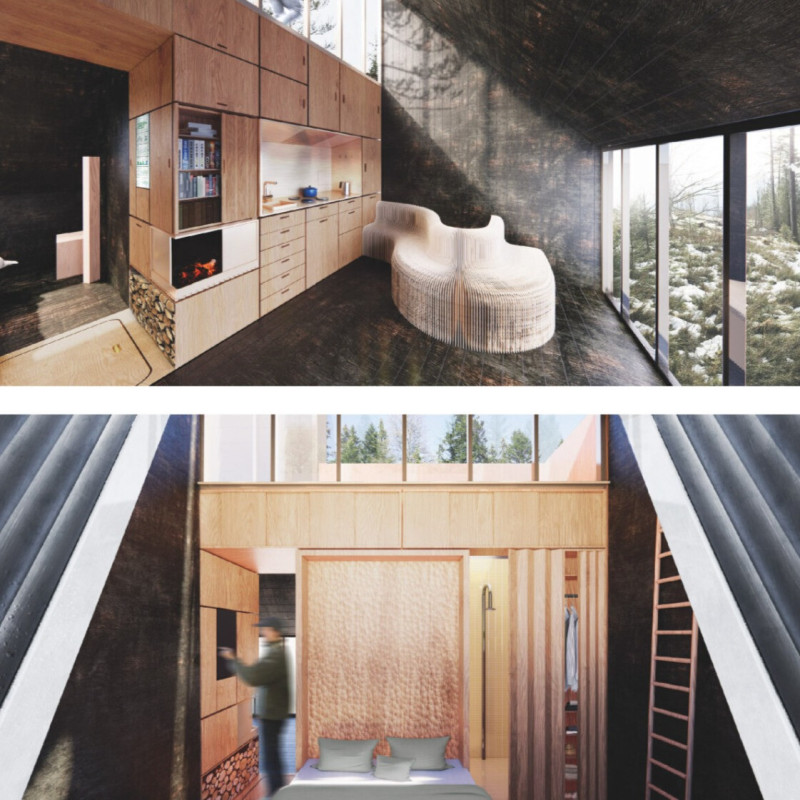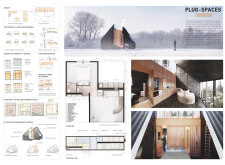5 key facts about this project
At the core of this design is the concept of modularity, which allows for a configuration that can be personalized based on the occupant's requirements. The architectural style combines modern aesthetics with practical elements, using a combination of innovative materials such as Corten steel, plywood, and glass to create a harmonious blend between durability and warmth. The choice of these materials highlights the project's focus on sustainability, as they not only provide structural integrity but also facilitate energy efficiency and minimal environmental impact.
The architectural design ethos focuses on creating a seamless interaction between the indoor and outdoor environments. Large windows flood the interiors with natural light, offering expansive views of the surrounding landscape. This deliberate integration ensures that occupants remain connected to nature while enjoying the comforts of a contemporary living space. The design considers the importance of natural light and ventilation, promoting well-being and enhancing the overall living experience.
Moreover, the project is equipped with several innovative features aimed at fostering a self-sufficient lifestyle. The incorporation of a rainwater collection system addresses water conservation, while integrated solar panels ensure that the energy needs of the home can be met sustainably. The addition of biogas and composting systems further reinforces the project’s commitment to environmentally friendly practices. These elements showcase how architecture can evolve to embrace ecological responsibility, presenting a modern way of living that prioritizes sustainability without sacrificing comfort or style.
The layout of "Plug-Spaces" is both functional and fluid, allowing for easy reconfiguration as the requirements of the inhabitants change. This adaptability is particularly vital in contemporary society, where mobility and lifestyle shifts are prevalent. Each space is thoughtfully designed, promoting efficient use of square footage while providing essential services for daily living. The potential to customize interior layouts enhances the user's engagement with the space, encouraging creative expression and personal connection to their home.
Another unique aspect of this architectural design is its emphasis on using recycled materials, which reflects a deep commitment to sustainability. By employing eco-friendly components throughout the build, the project not only minimizes waste but also promotes a culture of responsible consumption. This approach resonates with modern design principles, where the relationship between the built environment and our responsibility to preserve natural resources is increasingly recognized.
The overall design embodies a sophisticated yet straightforward approach to micro-living. It is a reflection of the evolving needs of society, encouraging occupants to embrace smaller, smarter, and more sustainable living solutions. The aesthetic appeal of the structure, paired with its innovative features, creates a compelling narrative for what modern architecture can achieve.
The "Plug-Spaces" project serves as a pertinent example of how architecture can respond effectively to current housing challenges through smart design and sustainable practices. It opens up avenues for discussion on adaptable living solutions and the significance of harmonizing home life with ecological considerations. For those interested in a deeper understanding of this project and its intricacies, including architectural plans, architectural sections, and design ideas, further exploration of the project presentation is highly encouraged.























